
Marking 5 decades of Ophthalmology Times, clinicians share the innovations that defined their training, shaped patient outcomes, and continue to push the field ahead.

Marking 5 decades of Ophthalmology Times, clinicians share the innovations that defined their training, shaped patient outcomes, and continue to push the field ahead.
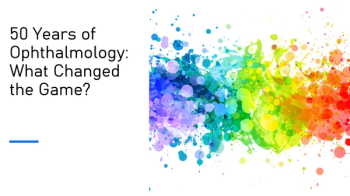
In honor of Ophthalmology Times’ 50th anniversary, anterior segment surgeons attending ASCRS 2025 weigh in on the innovations that defined modern ophthalmology.
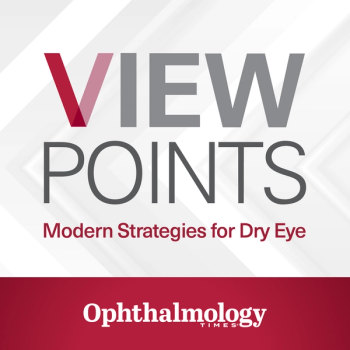
Bill B. Trattler, MD, Crystal Brimer, OD, Cynthia Matossian, MD, FACS, and Kelly K. Nichols, OD, MPH, PhD, discuss dry eye disease and the various approaches clinicians can take to treat the disease in part 4 of the Viewpoints Podcast.

Bill B. Trattler, MD, Crystal Brimer, OD, Cynthia Matossian, MD, FACS, and Kelly K. Nichols, OD, MPH, PhD, discuss dry eye disease and the various approaches clinicians can take to treat the disease in part 3 of the Viewpoints Podcast.

Bill B. Trattler, MD, Crystal Brimer, OD, Cynthia Matossian, MD, FACS, and Kelly K. Nichols, OD, MPH, PhD, discuss dry eye disease and the various approaches clinicians can take to treat the disease in the second part of the Viewpoints Podcast.

In this podcast, Bill B. Trattler, MD, Crystal Brimer, OD, Cynthia Matossian, MD, FACS, and Kelly K. Nichols, OD, MPH, PhD, discuss dry eye disease and the various approaches clinicians can take to treat the disease.
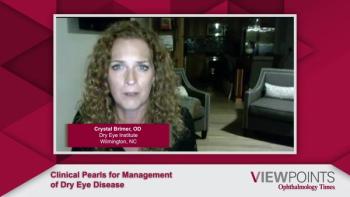
Experts conclude their discussion sharing clinical peals on the management of dry eye disease (DED) and how providers may invest in their practice to better screen and treat their patients.
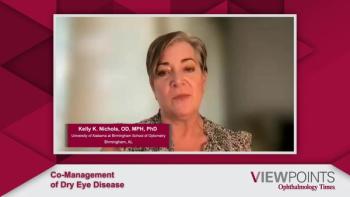
Experts discuss their clinical approaches for co-managing patients with dry eye disease and how they educate patients and their providers about the disease.
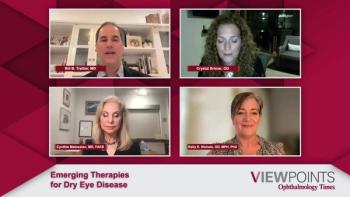
Crystal Brimer, OD, and Kelly K. Nichols, OD, MPH, PhD, discuss two treatments, AZR-MD-001 and Reproxalap, that are in the pipeline to treat patients with dry eye disease (DED).
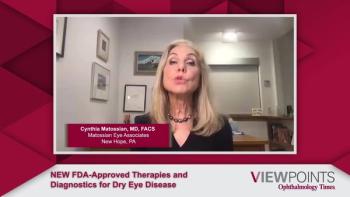
Cynthia Matossian, MD, FACS, and Kelly K. Nichols, OD, MPH, PhD, discuss three new FDA-approved therapies for the treatment of dry eye disease (DED).
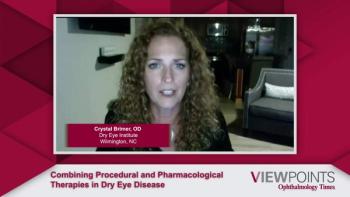
Experts offer their clinical expertise on managing patients with dry eye disease (DED) with concurrent procedural and pharmacological therapies and the importance of individualized care.
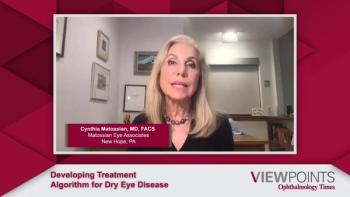
Cynthia Matossian, MD, FACS, provides her clinical advice on developing a treatment algorithm for patients with dry eye disease (DED).
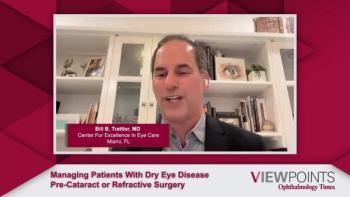
Kelly K. Nichols, OD, MPH, PhD, and Crystal Brimer, OD, provide their clinical advice on managing patients with overlapping eye diseases that need surgical treatment.
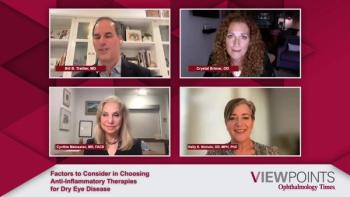
Experts discuss key factors to consider when using anti-inflammatory agents to treat dry eye disease (DED).
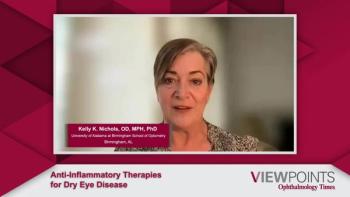
Kelly K. Nichols, OD, MPH, PhD, discusses various anti-inflammatory treatment options for dry eye disease (DED), such as cyclosporine, lifitegrast, and varenicline. In addition, Cynthia Matossian, MD, FACS, provides an overview of the mechanism of action of lifitegrast and how it differs from cyclosporine.
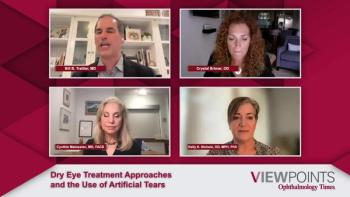
Experts discuss various treatment approaches for patients with dry eye disease (DED). They also highlight the challenges and drawbacks of using artificial tears to treat DED.
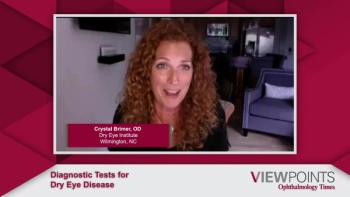
Bill B. Trattler, MD, Crystal Brimer, OD, Cynthia Matossian, MD, FACS, and Kelly K. Nichols, OD, MPH, PhD, discuss their preferred clinical diagnostic tools and tests to evaluate patients for dry eye disease (DED) and strategies for educating patients on their results.
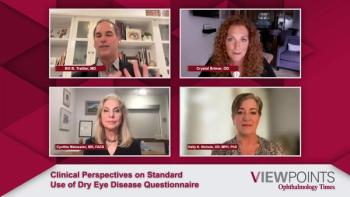
Experts offer their clinical perspectives on the use of dry eye questionnaires as a method of screening for dry eye disease (DED).
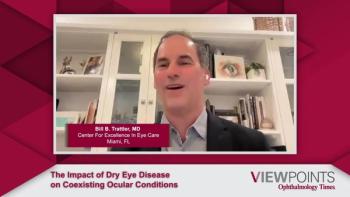
Experts discuss the impact of dry eye disease (DED) on coexisting ocular conditions and their clinical experience managing these patients.
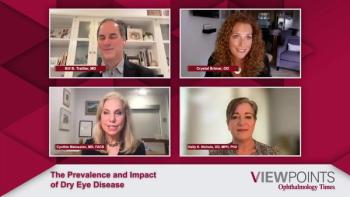
Bill B. Trattler, MD, Crystal Brimer, OD, Cynthia Matossian, MD, FACS, and Kelly K. Nichols, OD, MPH, PhD, discuss the prevalence of dry eye disease (DED) and how it can impact the quality of life for patients.

A leader in the field of ophthalmology, Cynthia Matossian, MD, FACS, ABES, discusses her career as she prepares for the next phase.

With a few key steps, surgeons can avert potential refractive surprises, and reduce postoperative dry eye for patients.
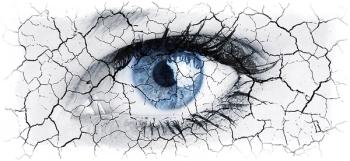
Cynthia Matossian, MD, FACS, ABES, explains why eye care professionals should oversee the selection and use of artificial tears for patients with dry eye.

Cynthia Matossian, MD, FACS, ABES, points out that there has been confusing news lately about what is (and is not) covered by Medicare when it comes to in-office treatments for meibomian gland dysfunction.

In light of newly published fee schedules that include low payment rates for LipiFlow, Cynthia Matossian, MD, FACS, ABES, advises on how eyecare professionals should advocate for their patients and practices.

Cynthia Matossian, MD, FACS, ABES, takes a look at the recent, sudden change in low-payment reimbursement by Medicare Administrative Contractors for LipFlow and MGD procedure codes.

Patients can try different drops and dosing schedules to improve outcomes.
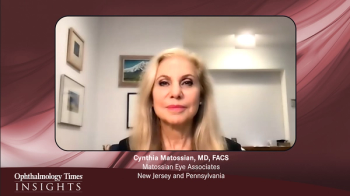
Cynthia Matossian, MD, FACS, discusses the short- and long-term treatment options for dry eye flares.

Dr Matossian explains the importance of treating dry eye flares and what can happen if they are left unchecked.

Dr Matossian elaborates on how both patients’ and physicians’ awareness of dry eyes flares affects their eyesight and how they move forward with treatment.

Published: January 21st 2021 | Updated:

Published: August 19th 2020 | Updated:
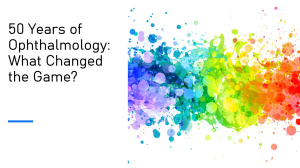
Published: July 8th 2025 | Updated:

Published: November 6th 2025 | Updated:

Published: August 21st 2022 | Updated:

Published: May 21st 2021 | Updated: